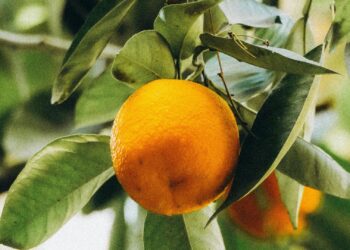South African grain farmers are poised to benefit from a significant new opportunity to strengthen soil health, build climate resilience, and unlock verified carbon-credit income with the recent launch of Smart Climate Ag, a climate-positive farming programme introduced by UPL Corporation Ltd (UPL Corp).
Developed in partnership with carbon project developer Orizon Agriculture and certified under Verra’s independent standard, the programme supports commercial row-crop farmers in adopting regenerative practices without compromising yields.
These practices include cover cropping, reduced tillage, optimised fertiliser use and the application of UPL’s NPP biosolutions to enhance soil biology and carbon sequestration.
According to UPL, Smart Climate Ag enables farmers to remain competitive while shifting toward long-term soil stewardship. The recently completed CarbonSmart pilot demonstrated the programme’s potential: 26 102 verified carbon credits were issued to three farmers covering 2 884 hectares of maize, based on measurable gains in soil organic carbon and reductions in greenhouse-gas emissions.
Participating farmers receive revenue from all carbon-credit sales.
Related stories
- Understanding the carbon landscape: Reducing carbon in agriculture
- Smart insurance could shield Africa’s farmers from climate shocks
- Regenerative farming: Healthy soil, healthy food, healthy profits
- Ernest shows how smarter grazing can fight climate change
Farming in a way that builds the soil
Speaking at the launch held in Johannesburg, Highveld farmer Juan de Kock said the shift to regenerative practices has helped him manage more volatile weather, increasing erosion and shifting seasonal patterns.
“It really feels as if our seasons have moved about a month later. We’ve had years where we couldn’t plant until deep into December, and other times the rain just doesn’t stop. The weather has definitely become more unpredictable,” he said.
De Kock explained that erosion on sandy soils has become far more severe during heavy rains, as worked land struggles to retain water and is easily washed away. He added that introducing cover crops is a practical solution because they stabilise the soil, reduce erosion and help rebuild soil carbon.
Meanwhile, UPL Corp CEO Mike Frank said Smart Climate Ag forms part of the company’s global strategy to help farmers adapt to a rapidly changing agricultural environment.
“Farming is hard everywhere, but in South Africa, it may be the hardest. There is no government support or safety nets, and yet the productivity and quality achieved here is as good as anywhere in the world. It’s impressive,” he said.
📢 Stand Up, Be Seen, Be Counted
We want to provide you with the most valuable, relevant information possible. Please take a few minutes to complete this short, confidential survey about your farming practices and challenges. Your feedback helps us tailor our coverage to better support the future of agriculture across Mzansi.
Why carbon matters
Matthew Kensett, manager of the CarbonSmart programme, said carbon credit farming is fundamentally about restoring natural capital.
He noted that global farm profits are under growing pressure from narrow margins, volatile markets and climate unpredictability, and that regenerative agriculture supported by carbon finance offers a practical way forward.
Kensett warned that South African soils have lost billions in unpriced carbon value over two decades, contributing to declining fertility, weaker water-holding capacity and greater climate vulnerability. Carbon, he stressed, is a core indicator of soil health. Through carbon markets, farmers can now assign a monetary value to stored soil carbon.
“By pricing carbon, we create a practical mechanism to measure, monitor, and manage soil carbon just like any other input on the farm,” Kensett said.
Kensett provided an overview of how Smart Climate Ag works:
- Baseline soil sampling and assessment: UPL and Orizon Agriculture conduct soil sampling and review historical management to establish baseline carbon levels and emissions.
- Adoption of regenerative practices: Farmers implement cover crops, reduced or no-till systems, improved rotations and biological soil-health products.
- Ongoing monitoring and verification: Soil carbon changes are measured or modelled over four years, alongside tracked reductions in emissions from fertiliser and fuel use.
- Carbon credit issuance: Verified gains are certified under Verra’s VM0042 methodology, with each tonne of carbon stored generating one carbon credit.
- Revenue to the farmer: Credits are sold on the voluntary carbon market, creating a diversified income stream.
Carbon-credit recipient, Callie Meintjies, summarised the experience: “The most challenging part is believing it will come true that you’ll reap the reward. But we did it. It requires endurance and resilience.”
READ NEXT: Maintaining organic matter: Key steps to boost soil health

















